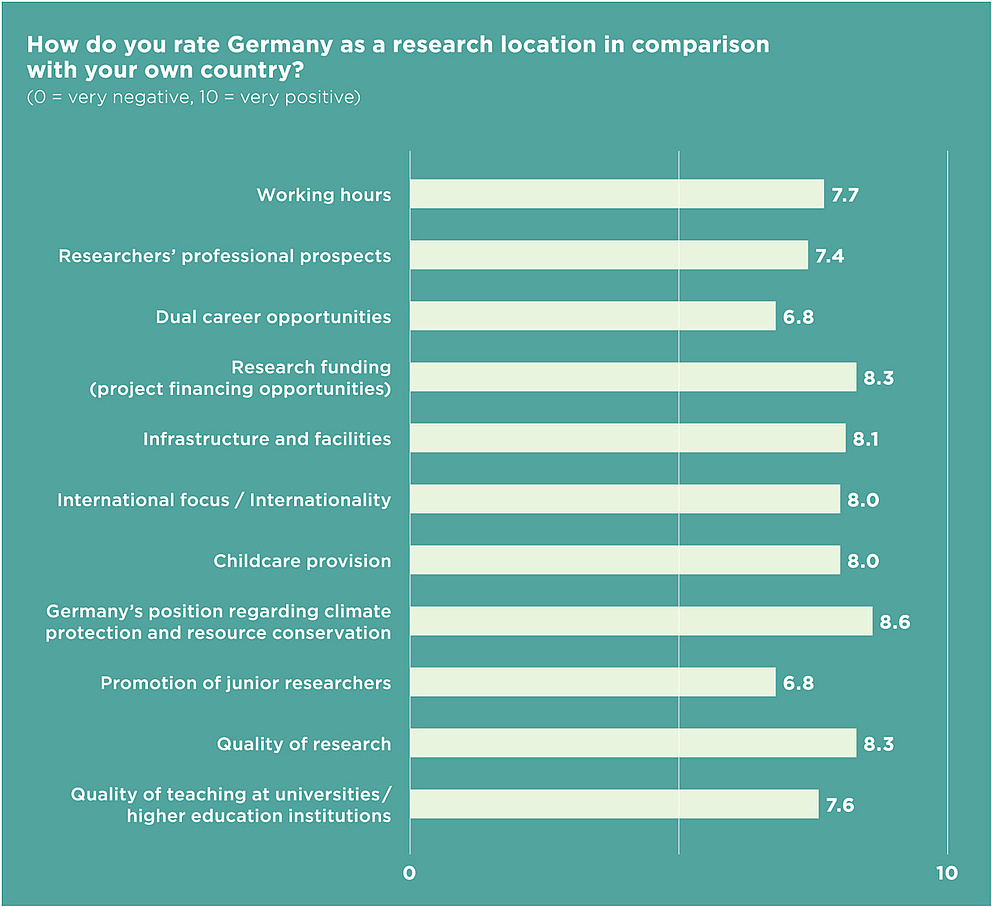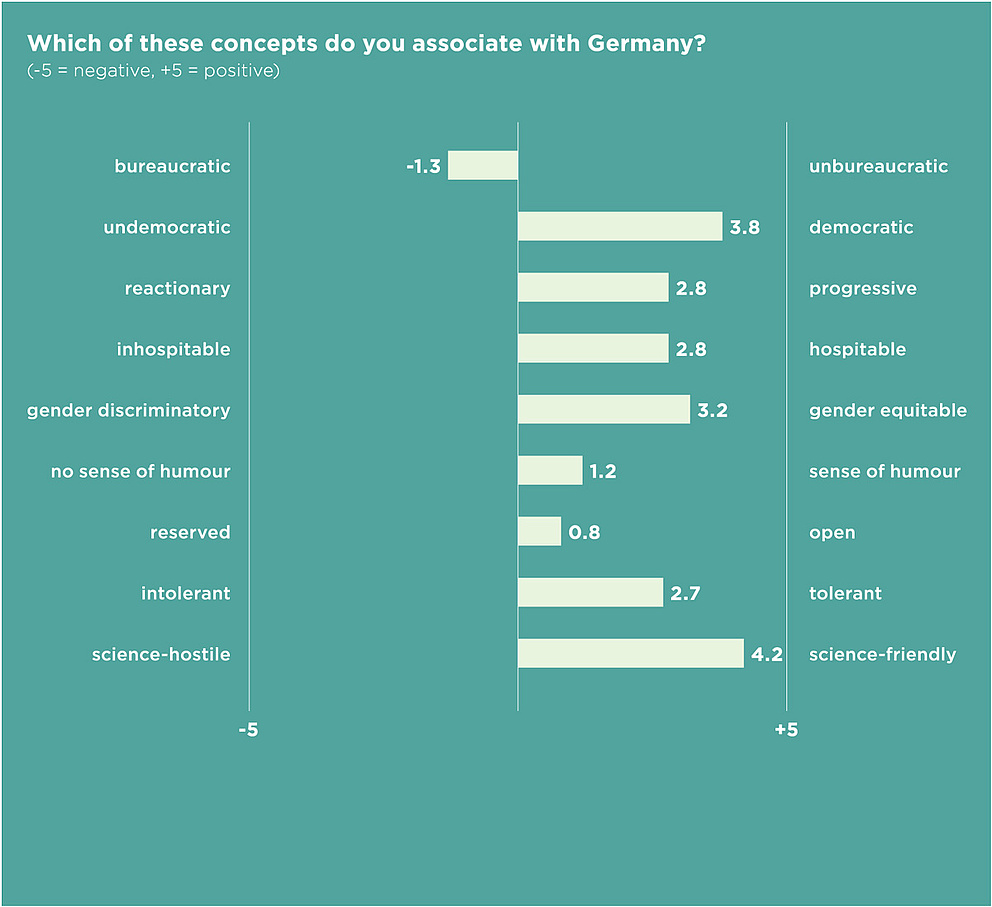Jump to the content
- {{#headlines}}
- {{title}} {{/headlines}}

BACKGROUND
In an online survey at the end of their research stay, which on average lasts 18 months, the Foundation’s sponsorship recipients evaluate various aspects according to predefined scales and are also free to add comments. All responses are anonymised prior to evaluation; qualitative content analysis is used to evaluate the comments. More than 94 percent of sponsorship recipients participated in the survey. The outcomes thus reflect the Humboldt fellows’ comprehensive, representative image of Germany.
How open and tolerant are Germans in their dealings with visiting researchers from abroad? How progressive are we, how bureaucratic, how hospitable? How well equipped are the labs or libraries? What about working hours, childcare and career opportunities for junior researchers?
The Humboldt Foundation has evaluated feedback from more than 1,800 fellows from 119 countries who were hosted by German universities and research institutions between August 2018 and May 2022. The survey reveals how Germany compares with the fellows’ own countries.

Top marks for research and financing
Without exception, Germany scores very well as a science location in comparison with the other countries. On a scale from zero to ten, there are top scores for infrastructure, quality of research, project financing opportunities, internationality and childcare. The results vary, however, according to the fellows’ regions of origin. Sponsorship recipients from Asia, for example, rate the quality of research higher than those from North America. Nevertheless, the evaluation does show that in these fields Germany performs well irrespective of the country it is compared with.
Also positive, although not so high, are scores for dual career options, promotion of junior researchers and professional prospects.
Asked what they associated with Germany on a scale from minus five to plus five, Germany emerged as very science friendly, democratic, gender equal, hospitable and tolerant. When it came to sense of humour and openness, the responses were not so positive.

The only negative result was for bureaucracy, whereby the fellows from Asia were the only ones to rate Germany as rather unbureaucratic. The worst score in this category came from sponsorship recipients from North America. In comparison with the last survey covering the period 2012 to mid-2018, this score dropped by a further 0.6 points.
In the comments, too, bureaucracy is frequently criticised (27 percent), followed by the language barrier (26 percent). Individual references to discrimination and racism account for six percent of the entire number of comments with sponsorship recipients from Sub-Saharan Africa reporting particularly frequently on this (10 percent of respondents from this region) and European sponsorship recipients least frequently (4 percent).
The main bottlenecks during the stay in Germany were associated with adjusting to the culture, language and procedures. But these small issues were sorted near to the end of the fellowship owing to the language fellowship support from the Foundation. After a few months of the stay, it was also easy to acclimatise to the culture and procedural systems too.

